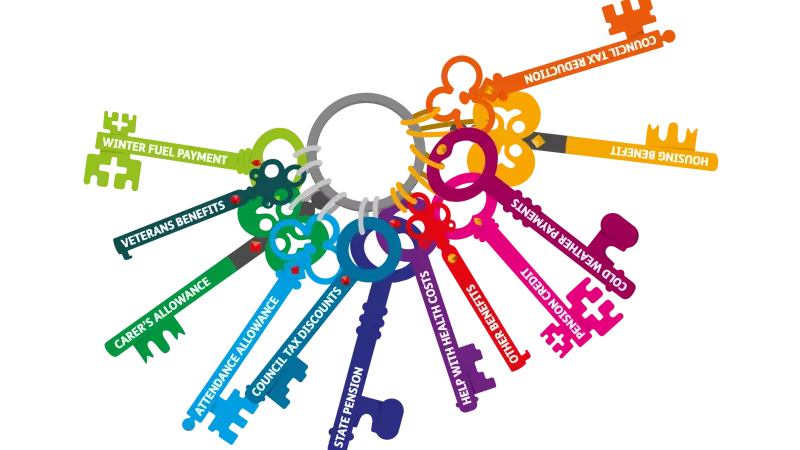Blog: Top Tips to prevent falls
It is Falls Prevention Awareness Week from 23rd to 29th September so we thought that we would blog about some top tips to help older people avoid, as best they can, falling and what each and every one of us can try and do to maintain or increase strength and balance.
Did you know that about a third of older people fall down at least once a year? Because of falling, many people lose their confidence, even if they haven’t hurt themselves.
While the risk of a fall can increase as we age, it’s not inevitable and there is a lot you can do to help prevent this from happening.
Here are a few tips.
1. Improve your strength and balance
Activities that improve muscle strength in your legs, arms, back, shoulders and chest are particularly important as you get older. They can make it easier to get up out of a chair and, because they improve your posture, co-ordination and balance, they’re an effective way to reduce the risk of falling. Moving about more strengthens your legs and makes you less prone to falling. Activities that will help your strength and balance are: using the stairs frequently, slowly and repeatedly rising to a standing position from a chair, walking, playing badminton, taking part in dancing, or yoga. Strength and balance exercises are important and there’s lots that you can do easily at home. Try and practice these at least twice a week, or when you get a chance - you could challenge yourself to one exercise each time you are waiting for the kettle to boil! Make sure you wear footwear that is supportive, comfortable and has good grip as this will help minimise the risk of slipping.
2. Check your sight and hearing
Our eyesight changes as we age and can lead to a trip or loss of balance. Get your eyes and glasses checked regularly – at least every 2 years. This will detect any vision problems early, before they cause you to lose your balance and coordination. Tell your doctor if your vision or hearing difficulties, or both, are affecting your day-to-day life. They will arrange an assessment and will explain the help available to make daily tasks easier. If you have fallen before it might be worth considering a personal alarm. They allow you to call for help if you need it, for example, if you’re unwell or have a fall and can’t reach a telephone.
3. Take steps to make the home environment safer
Firstly, take a fresh look at your home and see if there are any tripping hazards, for example rugs, slippery floors, clutter on stairs and walkways, poor lighting, or highly patterned carpets that are causing a problem with visibility. Then figure out which of these potential hazards could be easily modified to be safer. Install a night light near the bed to make sure if you wake up in the night you can see where you're going. You can install a motion-activated light that comes on as needed. Having handrails on both sides of the stairs is a great home adaption that can make a significant difference. Similarly, grab rails can be fitted in bathrooms and any other places where you notice yourself struggling on occasion.
Your local Care and Repair service will be able to help with fitting grab rails, mobility aids and helping to make your home safer.
If you live in Edinburgh, you can find out more about the services Care and Repair Edinburgh offer at www.cre.scot
Care and Repair Scotland can help locate a Care and Repair service local to you
For more information about taking positive steps to avoid trips and falls, why not call up the Age Scotland Helpline for a free copy of our “Up and about” guide, which has been produced in conjunction with NHS Health Scotland
Call us on 0800 12 44 222 for your free copy


